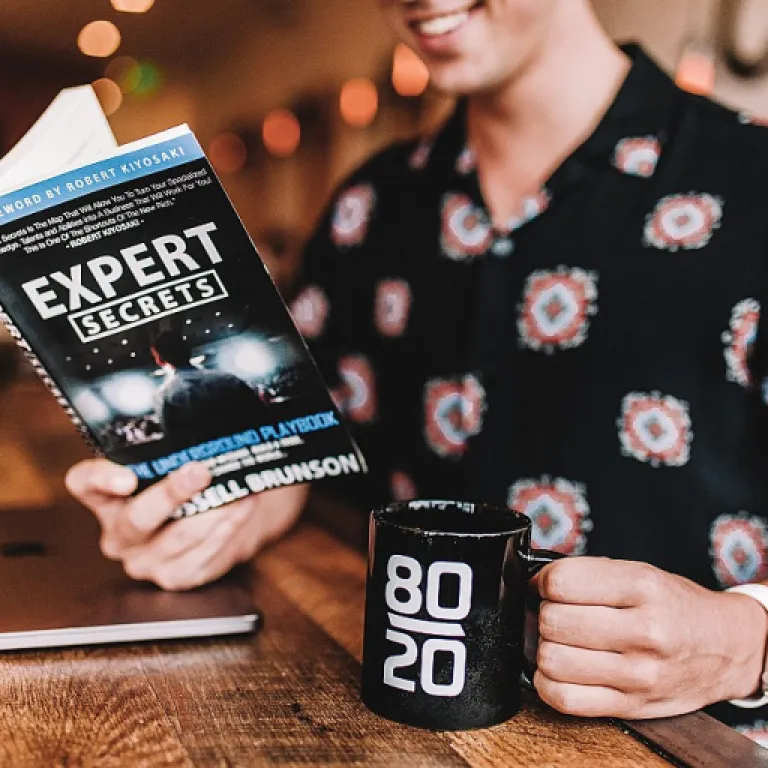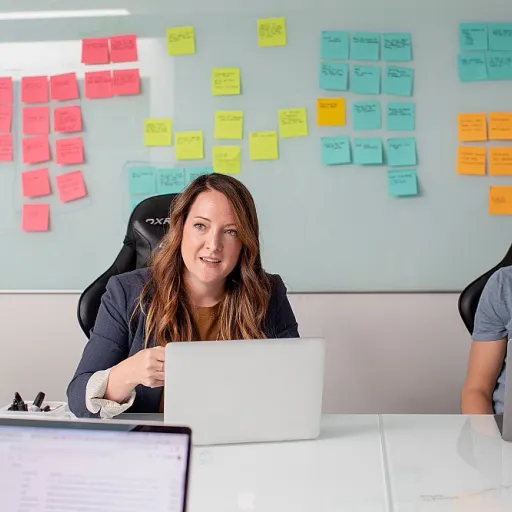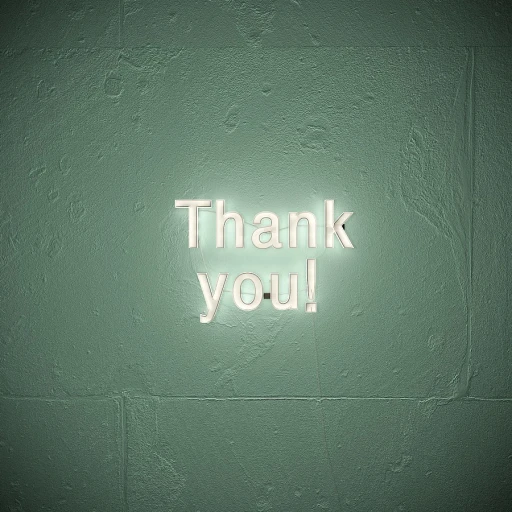
Understanding Chemical Vapour Deposition
The Fundamentals of Chemical Vapor Deposition Technology
When exploring the world of coatings, Chemical Vapor Deposition (CVD) stands as a critically important technology. It involves the transformation of precursor materials, typically in a gas or vapor form, into a solid state, thereby creating a thin film on a substrate. In CVD processes, this typically occurs within a vacuum chamber, ensuring a controlled environment to produce high-quality coatings.
CVD is often compared to another common method called Physical Vapor Deposition (PVD). While both processes aim to achieve similar results—thin, uniform coating layers—the techniques of applying the materials vary. Mastery of both methods can be a requisite in certain job searches, where understanding the nuanced difference can give an edge in interviews.
The applications for CVD technology are extensive, spanning a wide range of industries, including electronics, optics, and even medical devices. The precision and control offered by CVD processes make it ideal for high-stakes environments where quality control is paramount. Professionals in these fields often need experience working with sophisticated CVD equipment, handling substrates, and executing precise processing techniques.
Handling CVD equipment safely is vital. Working within the vacuum environment and dealing with various chemicals requires stringent adherence to safety protocols. Experience and practical skills come into play here, as interview questions in this field often delve into specifics surrounding equipment maintenance and problem-solving under operational scenarios.
For those seeking to master CVD processes, continuous learning is essential. The SCC Teaching Program offers a pathway to enhancing one’s expertise, paving the way for a career that thrives on innovation and technical excellence.
Common Interview Questions for Chemical Vapour Deposition
Essential Questions to Navigate Your Interview Process
Stepping into the world of Chemical Vapor Deposition (CVD) can be daunting, especially when preparing for an interview. Whether you are aiming for a position focused on coating applications or delve into the intricacies of vacuum processes, understanding common interview questions can be key. Here are some insights that can help you shine in your interviews:- Explain the CVD process: A foundational question will often include describing what CVD is and how it differentiates from other methods such as Physical Vapor Deposition (PVD). Be ready to discuss the basic principles, such as creating a thin film within a vacuum chamber, detailing each stage of the process.
- Describe your experience with coating equipment: Highlight any first-hand experience you have with the equipment used in CVD. Detailing your participation in equipment maintenance and operation conveys practical know-how.
- Discuss materials and substrates used: Interviewers look for candidates with an understanding of how various materials interact, including how substrate selection impacts coating quality. Be prepared to also touch upon common applications of CVD coatings.
- Quality control understanding: Employers often evaluate a candidate's knowledge of quality control processes. You might be asked how you ensure the integrity and consistency of coatings, emphasizing any experience related to inspecting and measuring coating layers.
- Safety protocols: A critical consideration in any CVD job. You should exhibit knowledge about safety protocols and the measures you've taken to ensure a safe working environment.
Technical Challenges in Chemical Vapour Deposition
Overcoming Technical Hurdles in CVD Processes
Chemical Vapor Deposition (CVD) is an advanced technique involving complex technical challenges that professionals must tackle efficiently. Ensuring the longevity and performance of the equipment is crucial. Experience working with a range of materials and understanding the interaction between these materials and the substrate is vital. Addressing these challenges requires:- Quality of Coating Layers: High-quality coatings are essential for effective CVD processes. This involves maintaining precise control over the chemical composition and the thickness of the thin film layers.
- Vacuum Control: Maintaining a stable vacuum chamber is pivotal in CVD to avoid contamination and achieve uniform coating processes. The vacuum allows for effective coatings over the substrate.
- Equipment Maintenance: Regular equipment maintenance enhances the quality control of the coatings and reduces the risk of interruptions in the coating processes.
- Safety Protocols: Implementing comprehensive safety protocols ensures that operations remain safe and efficient, especially when dealing with hazardous chemicals and high temperatures prevalent in CVD and PVD applications.
- Processing Techniques: Crisp understanding of both chemical vapor and physical vapor deposition processes can assist in troubleshooting and optimizing techniques in coating applications.
Continuous Learning in Chemical Vapour Deposition
Embracing Lifelong Learning in Chemical Vapour Deposition
In the evolving world of chemical vapour deposition (CVD), continuous learning is not just beneficial but essential. Whether you are a novice entering the field or someone with substantial experience, staying updated with the latest advancements, safety protocols, and processing techniques is crucial. The wide range of applications in CVD, from coating various substrates to equipment maintenance, requires a commitment to learning. CVD and physical vapour deposition (PVD) jobs often demand a comprehensive understanding of the coating processes involved. Regular exposure to new materials, vacuum systems, and thin film technologies ensures that professionals remain competent and confident in handling interview questions regarding the specific roles they are applying for. Continuous learning can be achieved through:- Courses and Workshops: Enroll in dedicated workshops focusing on new equipment, process optimization, and quality control methods.
- Industry Publications: Subscribing to journals and publications can keep you informed about the latest research and trends in both vacuums and coating technologies.
- Networking: Attending industry conferences allows you to engage with peers and experts, gaining insights into real-world solutions and job opportunities.
- On-the-Job Learning: Seek opportunities within your current position to try new techniques and processes, expanding your practical skills.
Practical Skills and Experience
Enhancing Practical Skills in Chemical Vapour Deposition
Building practical skills in Chemical Vapour Deposition (CVD) is essential for anyone looking to excel in jobs related to this complex process. CVD involves a wide range of coating methods, each requiring specific expertise and experience. Here are several ways to develop and refine the practical skills necessary for success:- Hands-on Experience: Gaining experience working with CVD and PVD (Physical Vapour Deposition) processes is crucial. This includes operating equipment within a vacuum chamber, managing the substrate preparation, and understanding the deposition of thin film and coating layers.
- Quality Control and Safety Protocols: Familiarize yourself with quality control measures and safety protocols. Regular equipment maintenance is crucial for preventing contamination and ensuring high-quality coatings. Keep up to date with the latest safety standards and procedures.
- Technical Processing Skills: Developing an aptitude for the technical aspects of processing materials, such as selecting the right materials and optimizing processing time, is important. Practice adjusting parameters to achieve desired coating qualities and applications.
- Real-world Applications and Problem-solving: Engage in real-world applications to understand the practical implications and technical challenges that can arise in the CVD process. This can involve troubleshooting issues related to equipment, vacuum conditions, or substrate selection.
- Learning Through Errors and Feedback: Address common interview questions as you prepare for CVD-related job interviews. Use past experiences, including errors, as learning opportunities for growth.
Resources for Further Learning
Building on Your Knowledge: Finding Resourceful Materials
The pursuit of proficiency in Chemical Vapour Deposition (CVD) does not end at understanding the process or mastering common interview questions. For professionals aiming to excel, seeking continuous learning opportunities becomes imperative. Whether delving into the technical challenges of coating processes or honing practical skills, a wide range of resources is available to reinforce your expertise.
Access to quality materials is crucial for deepening your understanding of CVD and its applications across industries. Here are some recommended resources to guide your continuous learning journey:
- Research Papers and Journals: Academic publications provide insightful data on the latest advancements in vapor deposition and related vacuum technologies. Frequent reading will keep you updated on technical breakthroughs and innovative methodologies.
- Online Courses and Webinars: Platforms offering courses on thin film deposition or equipment maintenance can bolster your practical experience. Look for content that addresses specific aspects like substrate compatibility or layer quality control.
- Industry Conferences and Workshops: Engaging with professionals through conferences provides exposure to practical demonstrations and expert discussions. These events are excellent opportunities to discuss processing issues or job-specific questions with peers.
- Books and Manuals: For in-depth technical guidance, refer to industry-standard manuals. These resources are instrumental in understanding various coatings processes and safety protocols pertinent to CVD and PVD.
- Tutorial Videos and Podcasts: Visually engaging tutorials can simplify complex equipment setups, such as vacuum chambers, ensuring proper operation during coating sessions. Podcasts often feature interviews with experienced professionals, offering a behind-the-scenes look at real-world applications.
By investing time in these resources, professionals can enhance their skill set in chemical vapor and physical vapor processes, ultimately enriching their experience and understanding. This proactive approach not only prepares individuals for potential job interviews but also supports a career committed to continuous improvement.













